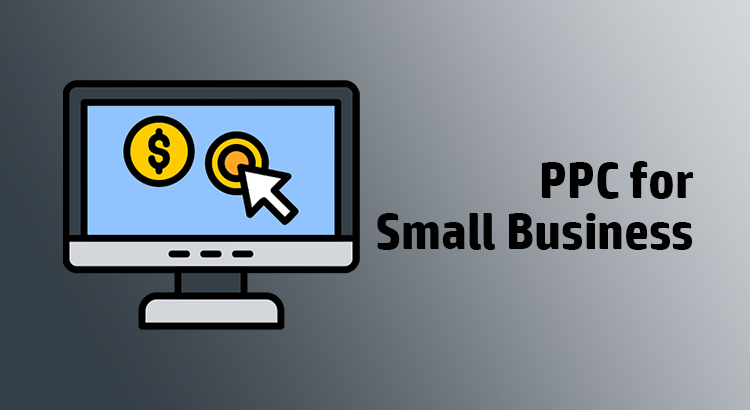PPC for small business offers a cost-effective means of advertising, enabling them to compete with larger competitors. With its ability to deliver fast, measurable results and its flexibility in targeting specific demographics, PPC holds immense potential for small businesses looking to enhance their online presence and drive sales.
Related Article: PPC Advertising: A Step-by-Step Guide to Successful Campaigns
Benefits of PPC for Small Business
1. Fast Results
PPC services offers quick implementation and immediate visibility, allowing businesses to reach their target audience swiftly and efficiently, driving traffic to their website in no time.
2. Measurable Results
With PPC, every aspect of a campaign is quantifiable, providing businesses with valuable insights into their advertising performance, enabling informed decision-making and precise budget allocation.
3. No Dependency on SEO or Google Algorithmic Changes
Unlike SEO, PPC campaigns are not affected by search engine algorithm updates, ensuring consistent visibility and control over advertising outcomes.
4. Reach the Right Audience
Through precise targeting options, PPC enables businesses to tailor their ads to specific demographics, locations, and interests, ensuring maximum relevance and engagement with their target audience.
5. Take Advantage of Business Opportunities
PPC empowers businesses to capitalize on market opportunities swiftly, allowing them to launch targeted campaigns to address consumer needs or capitalize on competitor downtime.
6. Brand Recognition
Utilizing PPC to target industry-related keywords enhances brand visibility and authority, establishing businesses as leaders in their niche and increasing overall brand recognition.
7. Open Your Doors to Local Customers
Leveraging PPC for local search ensures that businesses are visible to potential customers in their vicinity, driving foot traffic and increasing the likelihood of conversions.
8. Budget Friendly
With flexible budgeting options, PPC allows businesses to control their advertising expenditure, optimizing campaigns for maximum return on investment and scalability.
9. Great Tool to Test Your Marketing Strategies
PPC serves as an invaluable tool for testing different marketing approaches and refining strategies based on real-time feedback, ensuring optimal campaign performance and effectiveness.
10. Rich Functionality and Reporting
PPC platforms offer robust tools and comprehensive reporting capabilities, enabling businesses to manage campaigns efficiently, collaborate effectively, and gain actionable insights for continuous improvement.
PPC Tips for Small Business
Here are seven essential tips to help small businesses leverage PPC effectively:
1. Start Small
Launching a PPC campaign can be overwhelming, especially for those new to the concept. It’s advisable for small businesses to start with a single campaign on a platform like Google Ads.
Starting small allows you to familiarize yourself with the intricacies of PPC advertising, understand your audience better, and refine your strategies before scaling up.
2. Be Specific
Targeting broad keywords may seem like a way to cast a wider net, but it often results in wasted resources and low returns on investment. Instead, focus on highly specific keywords that closely align with your business offerings.
This not only reduces the cost per click but also ensures that your ads are seen by users actively seeking your products or services.
3. Use Strong Language
Craft compelling ad copy that grabs the attention of your target audience. Avoid generic or ambiguous language and instead opt for clear, persuasive messaging that encourages clicks.
Conduct A/B tests to determine which headlines or ad copies resonate best with your audience and refine your approach accordingly.
4. Utilize Geographic Keywords
For local businesses, incorporating geographic keywords into your PPC campaigns can significantly enhance targeting accuracy.
By geotargeting your ads and using language specific to your area, you can connect with potential customers in your vicinity and drive foot traffic to your brick-and-mortar store.
5. Include Clear Calls to Action
Every PPC ad should have a clear and compelling call to action (CTA) that prompts users to take the desired action, whether it’s making a purchase, signing up for a newsletter, or contacting your business.
Ensure that your CTAs are prominently displayed and aligned with your campaign objectives to maximize conversions.
6. Monitor Results
Regular monitoring and analysis of your PPC campaigns are essential for optimizing performance and maximizing ROI. Keep a close eye on key metrics such as click-through rates, conversion rates, and cost per acquisition.
Use this data to identify areas for improvement and make informed adjustments to your campaigns over time.
7. Consider Professional Assistance
Managing PPC campaigns requires time, expertise, and ongoing optimization. If you find yourself struggling to achieve desired results or lack the resources to manage campaigns effectively, consider hiring a professional internet marketing agency.
Experienced professionals can provide valuable insights, strategic guidance, and hands-on management to help you achieve your PPC objectives.
Useful Article: Building a PPC Marketing Strategy for Exceptional Results
Wrapping Up: Tips on PPC for Small Business
PPC offers small businesses a powerful platform to reach their target audience and generate leads or sales online. By following these seven tips, small businesses can optimize their PPC campaigns and achieve the desired results.


